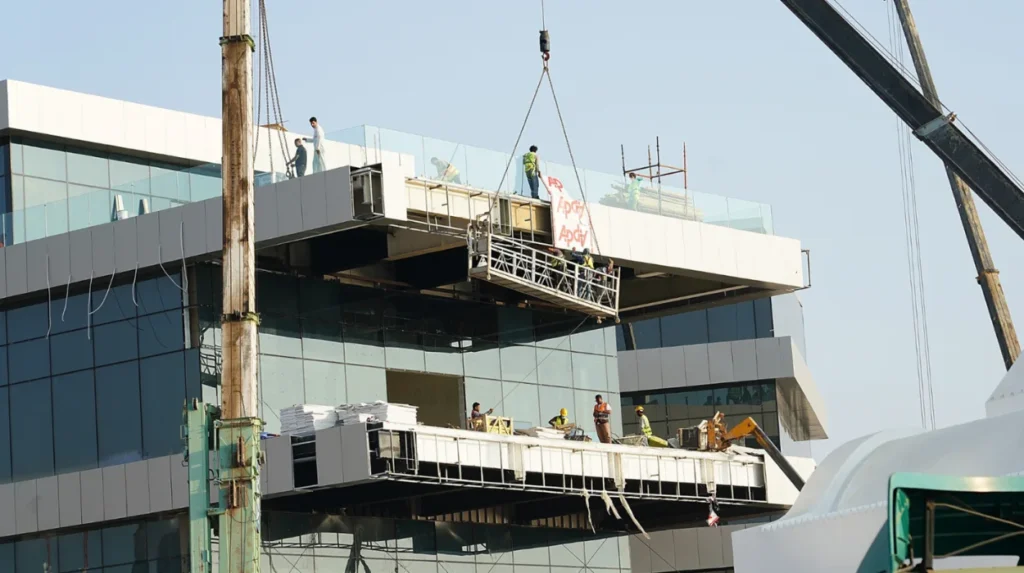The confirmation of Saudi Arabia as the sole bidder for the FIFA World Cup 2034 has created much controversy regarding the human rights record in the country. The most sensitive aspect is how the migrant workers are treated as they form the highest percentage in the labor sector. The FIFA World Cup is the world’s greatest footballing competition. It should reflect values of equality, equity, and human rights. In the wake of the exploitation of migrant labor through the restrictive legal regime in Saudi Arabia, hosting the world’s most celebrated sporting event, the World Cup, in the kingdom calls for grave ethical concerns.
Kafala System and Modern Slavery Concerns
The most important problem associated with the fate of migrants in Saudi Arabia is the same sponsorship system, that is, the kafala. Here, workers become so dependent on the employers and are, hence unable to go back to the homeland or transfer themselves to a new employer unless permission is obtained, thus under employers’ subjugation.
So much were they criticized, that this system attracted, on a large scale criticism from Amnesty International and Human Rights Watch, who view it as propagating a system of slavery, all under a mask of modernization. Saudi Arabia presents the highest proportion of modern slavery in the region of Arab States, with the estimated number as of 2021 being about 740,000 people under modern slavery
Despite some measures of reform, many workers have their passports taken away by their employers as a means of prohibiting them from leaving. Wage theft is another rampant issue in this regard; indeed, many employees report not having received wages and even delayed wage payments, with the worker ultimately facing financial pressure.
Migrant Worker Deaths in Mega Projects
In Saudi Arabia, a significant portion of the investment was done in huge construction projects that were to host future mega-events, like NEOM and The Line, among other stadium constructions.
The project has however been under lots of criticism as it sustains an impressive number of deaths and injuries among migrant workers. Thousands of Saudi Arabian workers suffer extreme heat, hazardous conditions, and long hours without pay in conditions similar to Qatar before the 2022 World Cup.
Many of the workers who die at work receive no compensation. The family members are left out of pocket in case of no financial support. A variety of poor healthcare, hygienic living conditions, and even a lack of proper safety measures enhance the alarming death toll among migrant laborers.
It has the potential to cause the risk of the exploitation and death of many workers when an estimated 21,000 migrant workers have died since the construction began on NEOM, part of Saudi Arabia’s Vision 2030 initiative. This averages more than 8 deaths per day over the past 8 years Saudi Arabia held the FIFA World Cup.
Violation of Domestic Workers
Many domestic workers who are working in Saudi Arabia reported domestic violence against them, such as physical and sexual abuse. The victims are domestic female workers, mostly in the Philippines, Indonesia, and Ethiopia countries.
Their reports of extremely severe treatment, including being locked up frequently in houses, refusal of food, or attacks against themselves, are noted. There does not appear to be a proper grievance mechanism in place for victims.
But whether Saudi Arabia, when it hosts the World Cup, finds space for temporary workers to build stadiums, manage tourism, and accommodate visitors remains to be seen. For now, their fate might just turn out to be that of migrant workers today: toiling under kafala’s diktats.
In the last couple of years, a record number of migrant worker bodies have been returned to their home countries. For instance, 5,666 bodies alone were returned from Saudi Arabia within one year
FIFA’s Human Rights Commitments
FIFA claims to be devoted to respect the human rights of the host country. After a scandal about the treatment of migrant workers in Qatar getting ready for the 2022 World Cup, FIFA promised to ensure that it will not put its future games at risk of sacrificing the rights of its employees. All the promises are made on the other side for offering Saudi Arabia hosting rights for the 2034 tournament.
Allowing Saudi Arabia to host the event would only see FIFA getting involved with a country that had been on record with labor abuse over the years. The organization would then be accused of hypocrisy for silencing the criticisms of labor injustices since the interests of money and political power have gained precedence over ethics.
International Outrage and Football Reputation Damage
Already, human rights organizations, international institutions, and soccer fans worldwide have criticized the poor human rights record of Saudi Arabia. The likely outcome of staging the World Cup in a country with such an abysmal record on workers’ rights will be massive street protests, increased diplomatic tensions, and boycott calls by human rights activists.
It has become a matter of much controversy during the 2022 Qatar World Cup, as teams, their fans, and even sponsors have started complaining regarding labor rights violations. Should Saudi Arabia follow this way, then FIFA will lose credibility further and segregate football enthusiasts all over the world.
Conclusion
That seriousness with which the country treats its migrant workers is serious enough on both ethical and human rights grounds to deprive it of hosting the FIFA World Cup in 2034. FIFA should uphold its human rights commitments by awarding the World Cup to a country with integrity and respect for all workers’ rights. It will be a gross contradiction to the self-proclaimed values of FIFA to award the World Cup to Saudi Arabia.

